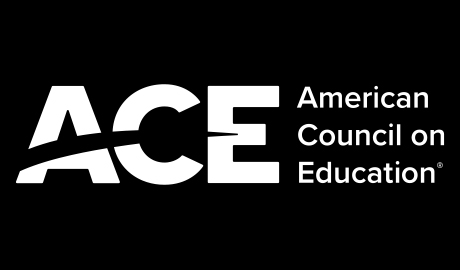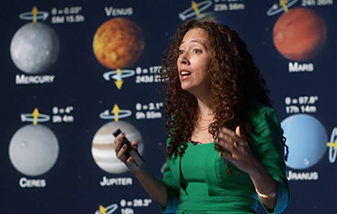Computer Science I – Online Higher Education Course
Computer Science I introduces students to object-oriented programming—from the basic “Hello, World!” program to more advanced concepts like recursion. In this 100% online course, students code alongside world-class instructors.
A New Way to Learn Computer Science
In this course, students will:
- Learn essential concepts and algorithms in Java programming
- Analyze, write, and test code as they create a Sudoku puzzle-solver and their own survival game
- Build skills in debugging, error handling, and defensive programming
- Solve problems in both the digital and non-digital world
- Discover the social impact and power of computer science
Gen Ed That Simply Works

Turnkey Courses
With online, asynchronous courses that are ready to run, you can deliver high-quality learning and outcomes predictably and affordably.

Curriculum You Can Trust
Every course is recommended by the American Council on Education. So you can trust the curriculum meets rigorous academic standards.

Captivating Student Experience
Students enjoy cinematic lectures from experts in the field and interactive, mastery-based learning—all in a flexible, 14-week course that fits their schedules.

Unlimited Enrollment
With no minimum or maximum enrollment, students get the courses they need when they need them, so they stay on track in their degree program.
Discover the magic of learning with Computer Science I
Watch the Trailer
Level up your students’ coding skills
-
Key Concepts
-
Learning Outcomes
-
Assessments
-
Educator Support
-
World-Class Instructors
Key Concepts Covered
-
Basics of Computer Science
- The computer science problem-solving process
- Java and other programming languages
- Basic components of a computer
- Syntax and semantics
- Keywords, identifiers, literals, types, and variables
- Declaration and assignment
- Numerical and comparison operators
-
Command Flow Structures
- if, else, else if, and nested if statements
- while, for, do-while, enhanced, and nested loops
- Variable scoping
- Defining and calling methods
- Method signatures and overloading
- Void and non-void methods
- Passing by value
-
Data Structures
- Declaring, traversing, and editing arrays
- Multidimensional arrays
- Defining, comparing, and manipulating strings
- Common String methods
- Declaring, traversing, and editing ArrayLists
- ArrayList methods
- Binary search
- Ethics of data collection and data privacy
-
Objects, Classes, and Inheritance
- Defining and creating classes and objects
- Constructor, main, accessor, and mutator methods
- Data visibility
- Libraries and classes
- Class hierarchies
- Overriding methods
- Polymorphism
- The Object class
-
Error Handling, Exceptions, and Recursion
- Error handling
- Defensive programming
- Enumerated types
- Libraries and classes
- Catching, throwing, and creating exceptions
- Recursive methods
- Selection sort, insertion sort, Quicksort, and merge sort
Learning Outcomes
-
Course Learning Outcomes
- Demonstrate familiarity with the essential computer programming concepts
- Apply the basic concepts and principles of structured programming and object-oriented programming
- Apply computational thinking, common data structures, and algorithms to designing problem solutions
- Formulate test cases, test, and debug a program
- Translate a well-posed problem into a functioning program in order to analyze or solve the problem
Assessments
-
Quizzes and Exams
- Course quizzes and exams consist of multiple choice, true/false, select all that apply, matching, and open-response questions. All are autograded by the LMS, so educators can spend more time with students and less time grading.
-
Programming Code Assignments
- Students apply programming and problem-solving skills to design coding solutions in 3 long-form coding assignments. These assignments build toward their capstone project: building a game using Java.
Educator Support & Dashboard
-
Access All Course MaterialEducators and administrators have full access to the Partner Dashboard and all course material from Day 1.
-
View Course MilestonesEasy-to-use tools show milestone dates and deadlines for the cohort, as well as the full weekly course schedule.
-
Monitor Student Progress in Real TimeShort answer assignments are included at the end of each module, providing an opportunity for students to analyze and apply their learning to a real-world situation. Students are supplied with a detailed assignment rubric, with clear expectations.
-
Download Student Grades & ProgressEducators and administrators can download student grades and full progress report details in CSV format.
-
Review Student Submissions for Graded AssessmentsEducators and administrators can view student-submitted answers to assignments, quizzes, and exams.
World-Class Instructors
-
World-Class Instructors
We handpicked these instructors for their uniquely human take on computer science. So your students experience just how approachable, accessible, and inclusive computer science can be.
- Xanda Schofield, Ph.D., Harvey Mudd College
- Michael Lee, MS, Illinois Institute of Technology
- Erin Hoffman, UDACITY
- Richard Tillies, MS, Durham Technical Community College
Computer Science Course FAQs
-
How are Outlier courses structured?
Outlier courses are divided into a series of chapters and sections. Each section contains cinematic video lectures and active learning (our interactive digital textbook) that help students learn the course content.
In Computer Science I, two code ambassadors guide students through real-world examples to practice the concepts they learn each week. Students then demonstrate their knowledge on graded assessments, including quizzes, exams, a cumulative final exam, and a three-part capstone assignment.
-
Are there any course prerequisites?No.
-
Are there any student eligibility requirements?
Students must be at least 13 years old. Students who enroll in an Outlier course should be ready for the academic rigor of college-level coursework and carefully consider their existing responsibilities and dedication.
-
What technology does my school need to take Outlier courses?
Each student must have access to technology that meets the technical requirements noted in this Help Center article.
-
What is the minimum/maximum enrollment?
All Outlier courses have unlimited enrollment, with no minimum or maximum. So they easily adapt to your scheduling and staffing needs.
-
What support is available for educators?
Your educators get complete visibility into student progress in the Partner Dashboard, including:
- Progress monitoring based on the course syllabus and schedule
- Grade pacing and forecasting based on students’ performance
-
Is Computer Science I completely online?Yes, Outlier courses are 100% online and asynchronous. Your students can learn during any class period—anywhere in the universe with Wi-Fi and a laptop or desktop computer.